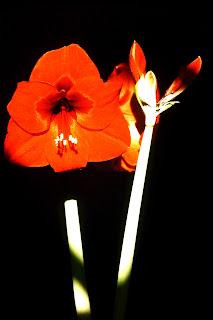This begins a series about
the changes wrought in my life by the sudden and unexpected death of my
husband, only days after we returned from an out-of-state promotion trip for
my WATERSPELL trilogy. For 32 years, Gene was
my anchor and the pivot around which my life revolved. Learning to live without
him is the hardest thing I have ever done. I hope my “Creative Widowhood” posts
will help others who have suffered a similarly devastating personal loss.
Imagine you’re walking through a forest. Birds are singing.
Sunlight filters softly through the trees. The air is warm, with just enough
breeze to comfortably cool you. The breeze makes contented sounds, high in the
treetops. Shed pine needles cushion the path underfoot. It’s a perfect day, and
you are perfectly happy.
In an eye-blink, clouds cover the sun, darkening the forest
and dropping the temperature. You shiver. Your backpack holds no jacket or
blanket or flashlight: in the cold darkness, for the first time in a long time,
you feel real fear. Not nervousness or anxiety, but gut-shredding fear. You
stumble ahead, the cold like an icy razor slicing into you. The wind rises
until it roars in your ears and stings the tears from your eyes. You can barely
hear or see. You are disoriented and you can’t think: all around you,
everything has gone wrong so very quickly.
Then the earth beneath your feet splits open as if a giant
has struck a blow with an enormous axe. You tumble into the cleft. Down you
fall.
You’ve nothing to grab onto. Or if something’s there, you
haven’t the presence of mind to reach for it. You’re numb now, and dazed, like
you’ve taken a hard blow to your head. And your heart. You barely notice when
you hit bottom.
In the depths, you’re unaware of the passage of time. The
days run together as you huddle down there, only half conscious, alone and cut
off from the world …
Slowly, very gradually, sensation begins to return. You
struggle to focus your thoughts. At first there’s nothing to focus on
except the pain you’re in. You realize you’re badly bruised and you’re all cut
up. Every part of you is raw. You feel shredded.
Though each move is painful, you force yourself to sit up and
think back. What happened? you ask yourself. How did it happen? You don’t get
far in your thinking because you can’t get past the barrier of disbelief. Your
life was a happy ramble through a sunny forest. You want your life back. You
want out of this black pit.
Slowly you get to your feet. Your first steps are weak and
wobbly. It takes a while before you’re able to begin climbing. But once you
start, you feel stronger, though you still hurt. Up you go, unsteadily pulling
yourself out of the pit, sometimes sliding back a little but toughening up as
you go.
When you reach the rim and haul yourself out onto rocky but
semi-level ground, you discover you’re on the opposite side of the great cleft.
Where the earth split open under your feet, you can look across and see the easy
path you were following when it happened. But there’s no way to jump the gulf
and resume your original journey. It has ended.
Your only option is to face the other way and start walking.
Leaving the gashed earth and the dark pit behind, you move toward the sunlight
that once again filters through the forest trees. The light lies a great
distance ahead of you. To reach it, you have a long way to go.
Twenty Weeks
In WATERSPELL Book 1: The Wysard, my protagonist, Carin,
studies a map in her captor’s library and is astonished to see how far she has
traveled in twenty weeks.
I, too, am surprised by how far I’ve come in the twenty weeks
since my husband’s death. For much of that time, I was gripped by a sense of
unreality, too dazed to accept what had happened. My husband was the strongest,
most resourceful man I’ve ever known. When faced with a problem, he invariably
figured out the solution. Particularly tough problems might take a long while
to solve, but in the end he always emerged victorious. I fully expected him to
solve the problem of cancer.
… a cancer we didn’t even know he had. He received the
diagnosis of esophageal cancer on a Monday. Six days later, he was gone.
The suddenness of it dropped me into a dark pit, exactly as
if the earth had opened under my feet. In future posts, I hope to chronicle the
progress I’ve made in climbing out of that pit and walking a new path. Until
recently I could only stumble ahead, but now I’m stepping more confidently.

